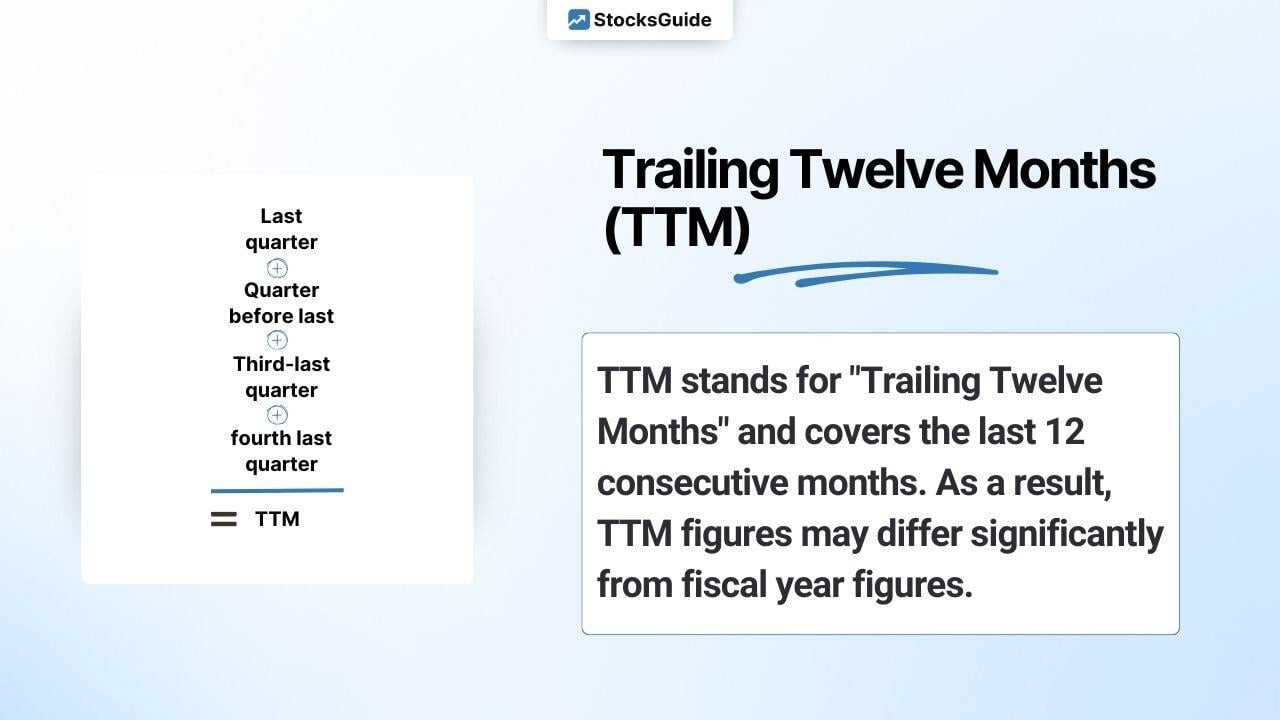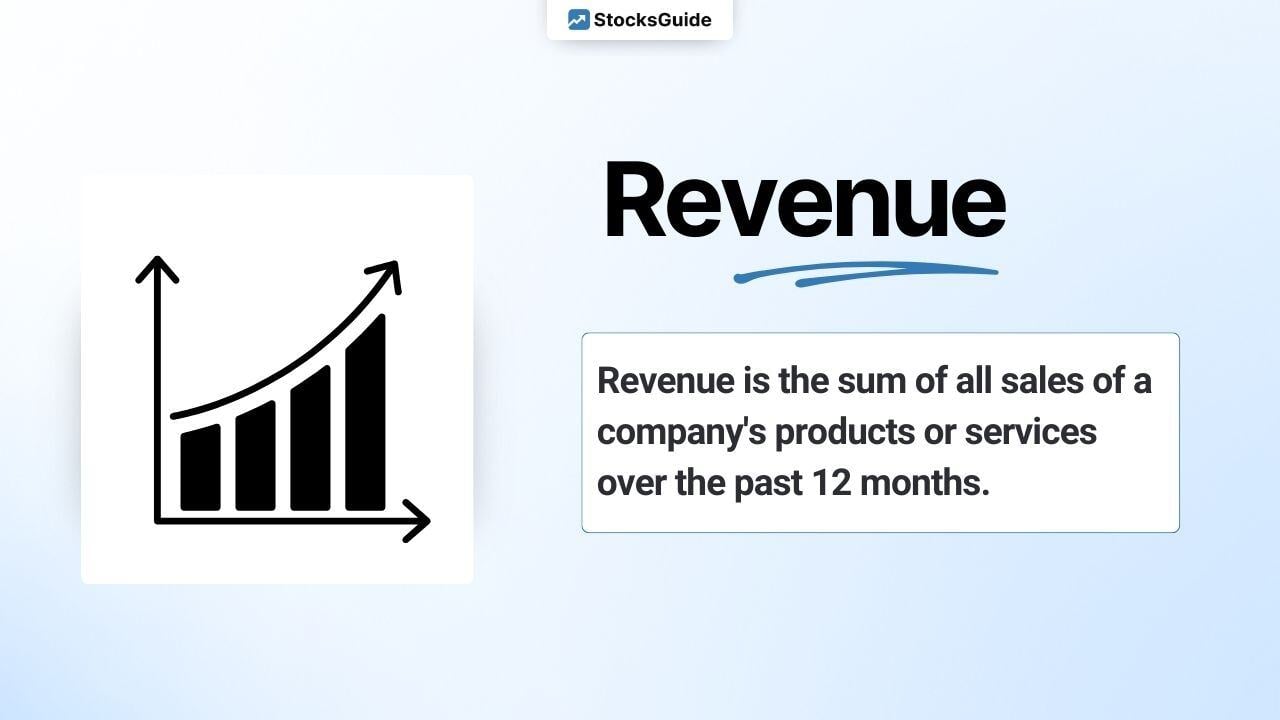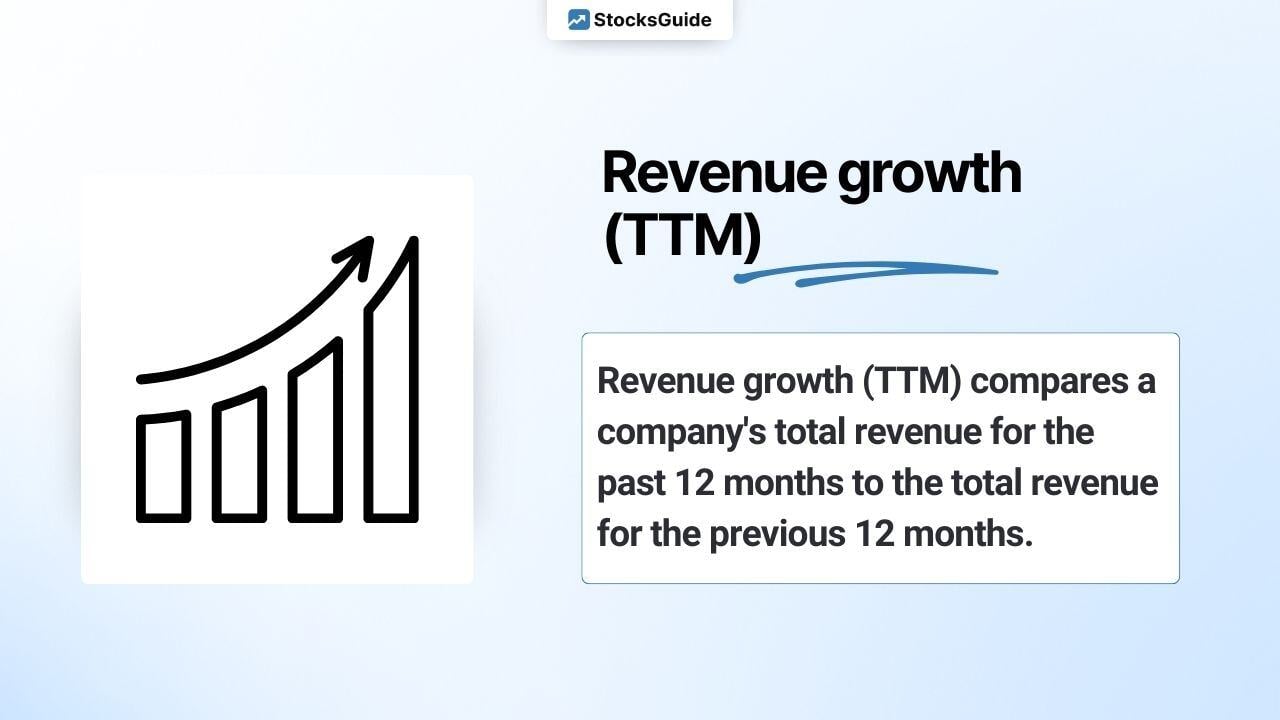Table of Contents
What Does TTM Mean?
TTM stands for “Trailing Twelve Months,” representing the most recent 12 consecutive months, incorporating the latest four quarterly reports. This method ensures up-to-date data, which can differ significantly from annual figures.
Formula: TTM=Last Quarter+Second Last Quarter+Third Last Quarter+Fourth Last Quarter
LTM: LTM (Last Twelve Months) is synonymous with TTM, though TTM is more commonly used.
TTM Basics
Professional investors and analysts prefer TTM due to its seasonally adjusted recency, making it particularly relevant for financial metrics like Earnings Per Share (EPS).
TTM Metric Examples
- Revenue (TTM): Total income from products or services over the last 12 months.
- EBIT (TTM): Operating profit or loss over the last 12 months.
- Net Profit (TTM): Profit or loss after all expenses and taxes over the last 12 months.
- Free Cash Flow (TTM): Available profit for dividends, share buybacks, or debt repayment over the last 12 months.
Evaluation Metrics (TTM): EV/Sales, EV/FCF, P/E ratio, P/S ratio, etc., are calculated daily using TTM figures in stocks.guide.
Where to Find TTM Data?
TTM data is available in various sections of stocks.guide, allowing you to switch between quarterly, TTM, and annual data for financial metrics.




%20%F0%9F%87%BA%F0%9F%87%B8.jpg)
